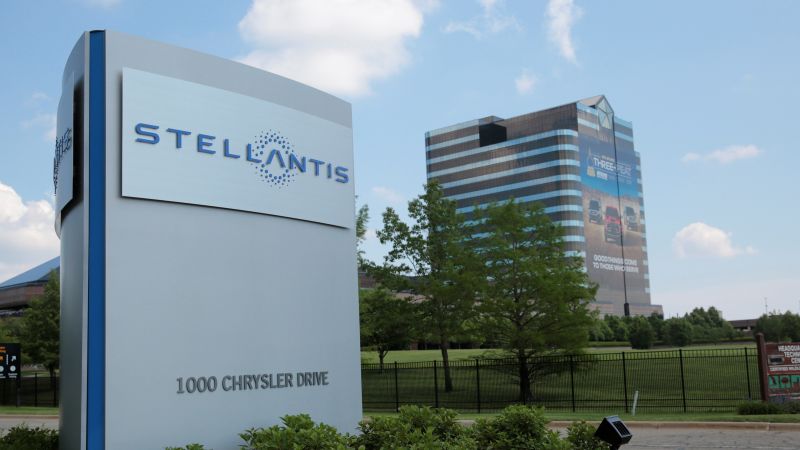Chrysler’s parent company, Stellantis, has filed a federal lawsuit against the United Auto Workers (UAW) for threatening to strike over delays in planned investments. The automaker filed the suit in response to a strike authorization vote by UAW Local 230 in Los Angeles, arguing that it violates the terms of the contract reached last fall. Stellantis seeks to hold the UAW and the local union chapter liable for any potential revenue loss and damages resulting from lost production due to a strike.
A supermajority of UAW members at Stellantis’ Los Angeles Parts distribution center voted to request strike authorization if the company and union cannot settle a grievance over planned investments. UAW President Shawn Fain has accused the company of violating the contract by backing off investment commitments. However, Stellantis argues that investments were always subject to market conditions, and demand for electric vehicles has slowed since the deal was signed. The company claims that the UAW acted in bad faith by calling a strike authorization vote to pressure Stellantis.
Fain responded to the lawsuit by stating that Stellantis management is trying to scare and confuse members about their right to authorize a strike. He described the company’s actions as desperate and expressed confidence in the union’s right to strike. Fain believes that Stellantis CEO Carlos Tavares wants to make sharp cuts to the company’s underperforming US operations and is committed to enforcing the contract to protect American jobs.
As part of the contract with the union, Stellantis agreed to invest $1.5 billion in its Belvidere, Illinois assembly plant to build new mid-size trucks by 2027. This was part of a $19 billion overall investment plan by the automaker. Despite acknowledging delays in some investments due to economic conditions, Stellantis stated that it stands by its commitment. The Energy Department plans to award Stellantis $334.8 million to convert the Belvidere Assembly plant to produce electric vehicles and $250 million to convert the Indiana Transmission Plant in Kokomo for EV components, although these awards are not final.
The ongoing dispute between Stellantis and the UAW highlights the challenges facing the automotive industry as it transitions to electric vehicles. The company’s decision to delay some investments has led to tensions with the union, which is concerned about job security and the impact on its members. Both sides are digging in their heels, with the union accusing the company of bad faith and the company accusing the union of using strike threats to pressure Stellantis. The outcome of this dispute will have significant implications for both parties and could impact the future of manufacturing in the United States.


